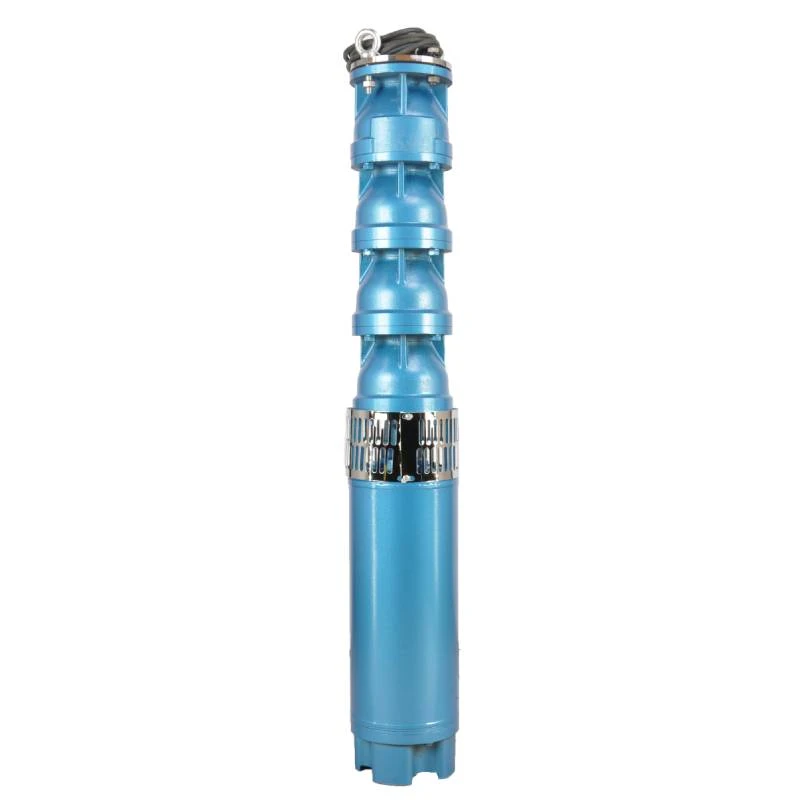Aug . 06, 2024 02:22 Back to list
Innovative Variable Speed Technology for Efficient Deep Well Pumping Solutions and Energy Savings
Variable Speed Deep Well Pumps Enhancing Efficiency and Performance
In the realm of water resource management, deep well pumps play a crucial role in extracting groundwater for agricultural, industrial, and domestic use. Among the various types of deep well pumps available in the market, variable speed deep well pumps have gained significant attention for their operational efficiency and adaptability. This article explores the benefits and functionalities of variable speed deep well pumps, highlighting their importance in modern water supply systems.
Understanding Deep Well Pumps
Deep well pumps are designed to lift water from significant depths—typically, more than 25 feet. These pumps are essential in areas where groundwater levels are deep enough that traditional pumps would be ineffective. Deep well pumps are often categorized into two main types submersible pumps and line-shaft turbine pumps. Both types are capable of delivering substantial volumes of water, but their operational characteristics differ.
The Shift to Variable Speed Technology
Traditionally, well pumps operated at a constant speed, which means they delivered water at a fixed rate, regardless of the demand. This constant operation can lead to inefficiencies, such as energy waste, increased wear and tear, and poor system control. In contrast, variable speed deep well pumps utilize advanced technology, such as variable frequency drives (VFDs), to adjust the motor speed based on real-time water demand.
The primary advantage of variable speed pumps is their ability to optimize energy consumption. By matching the pumping rate to the actual demand, these pumps operate more efficiently, reducing energy costs and minimizing the environmental impact. For instance, in agricultural applications, farmers can conserve energy during low-demand periods while ensuring adequate water supply during peak irrigation times.
variable speed deep well pump

Enhanced Control and Performance
Variable speed deep well pumps offer enhanced control over the pumping process. With the capability to fine-tune the pump's operation, users can maintain consistent pressure levels, which is crucial for applications requiring reliable water delivery. This control ensures that the pump operates within its optimal range, thereby extending its lifespan and reducing maintenance costs.
Additionally, the integration of smart technology into variable speed deep well pumps allows for remote monitoring and management. Users can track performance metrics, detect issues early, and make informed decisions regarding maintenance or operational adjustments. This technological advancement not only improves reliability but also contributes to proactive water management strategies.
Environmental Considerations
As climate change and water scarcity become increasingly pressing issues, variable speed deep well pumps play a significant role in promoting sustainable water usage. By reducing energy consumption, these pumps contribute to lower greenhouse gas emissions associated with water pumping. Moreover, efficient water management helps ensure that aquifers are not overdrawn, supporting the long-term health of groundwater resources.
Conclusion
The adoption of variable speed deep well pumps represents a significant advancement in groundwater extraction technology. Their ability to optimize energy use, enhance control, and promote sustainable practices makes them a vital component of modern water management systems. As the demand for efficient and environmentally friendly solutions continues to grow, variable speed deep well pumps will likely play an increasingly important role in ensuring reliable and sustainable access to this critical resource. As such, stakeholders in agriculture, industry, and municipal water supply should consider integrating variable speed technology into their water management strategies to maximize efficiency and contribute to sustainable development goals.
-
Submersible Water Pump: The Efficient 'Power Pioneer' of the Underwater World
NewsJul.01,2025
-
Submersible Pond Pump: The Hidden Guardian of Water Landscape Ecology
NewsJul.01,2025
-
Stainless Well Pump: A Reliable and Durable Pumping Main Force
NewsJul.01,2025
-
Stainless Steel Submersible Pump: An Efficient and Versatile Tool for Underwater Operations
NewsJul.01,2025
-
Deep Well Submersible Pump: An Efficient 'Sucker' of Groundwater Sources
NewsJul.01,2025
-
Deep Water Well Pump: An Efficient 'Sucker' of Groundwater Sources
NewsJul.01,2025
-
 Submersible Water Pump: The Efficient 'Power Pioneer' of the Underwater WorldIn the field of hydraulic equipment, the Submersible Water Pump has become the core equipment for underwater operations and water resource transportation due to its unique design and excellent performance.Detail
Submersible Water Pump: The Efficient 'Power Pioneer' of the Underwater WorldIn the field of hydraulic equipment, the Submersible Water Pump has become the core equipment for underwater operations and water resource transportation due to its unique design and excellent performance.Detail -
 Submersible Pond Pump: The Hidden Guardian of Water Landscape EcologyIn courtyard landscapes, ecological ponds, and even small-scale water conservancy projects, there is a silent yet indispensable equipment - the Submersible Pond Pump.Detail
Submersible Pond Pump: The Hidden Guardian of Water Landscape EcologyIn courtyard landscapes, ecological ponds, and even small-scale water conservancy projects, there is a silent yet indispensable equipment - the Submersible Pond Pump.Detail -
 Stainless Well Pump: A Reliable and Durable Pumping Main ForceIn the field of water resource transportation, Stainless Well Pump has become the core equipment for various pumping scenarios with its excellent performance and reliable quality.Detail
Stainless Well Pump: A Reliable and Durable Pumping Main ForceIn the field of water resource transportation, Stainless Well Pump has become the core equipment for various pumping scenarios with its excellent performance and reliable quality.Detail
